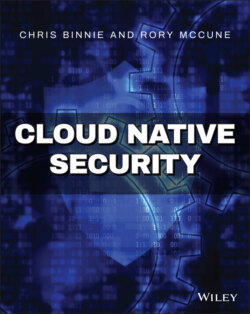Читать книгу Cloud Native Security - Chris Binnie - Страница 29
CHAPTER 3 Container Runtime Protection
ОглавлениеIn previous chapters, we looked at the need to get the permissions correctly configured to protect other containers running on a host and indeed the host itself. In Chapter 6, “Container Image CVEs,” we will also look at protecting against common vulnerabilities and exploits (CVEs) to plug security holes in container images. The third major aspect of container security is at least as important from an operational perspective. That is the need to capture and potentially automatically remediate any issues when anomalous behavior is discovered from your running containers.
Only a handful of trustworthy and battle-worn container runtime security applications exist. Of those there is one Open Source tool that stands out from the crowd. Created by a company called Sysdig (sysdig.com) in 2016 and a member of the Cloud Native Computing Forum (CNCF), Falco (falco.org) excels at both container and host security rules enforcement and alerting. Of the more popular commercial tools there are Prisma Cloud Compute Edition (formerly Twistlock prior to acquisition) and Aqua from AquaSec.
Falco (sysdig.com/opensource/falco) offers exceptional Open Source functionality that can be used to create rulesets to force containers to behave in precisely the way you want. It also integrates with Kubernetes API Audit Events, which means that all sorts of orchestrator actions can be secured in addition. You can find more information here:
falco.org/docs/event-sources/kubernetes-audit.
In this chapter, we will look at installing Falco and then explore its features and how it can help secure our container runtime and underlying hosts, in the same way that some commercial products do, but without any associated fees. We will also explore using some of its rulesets and how to make changes to them yourself.
